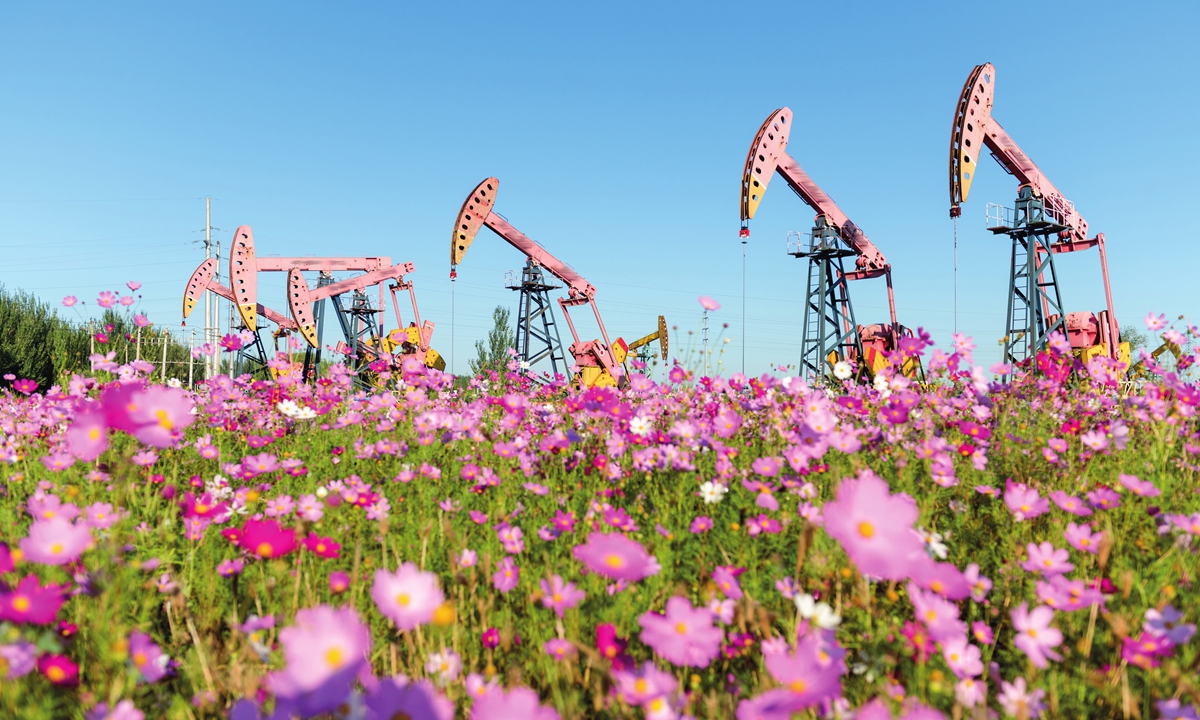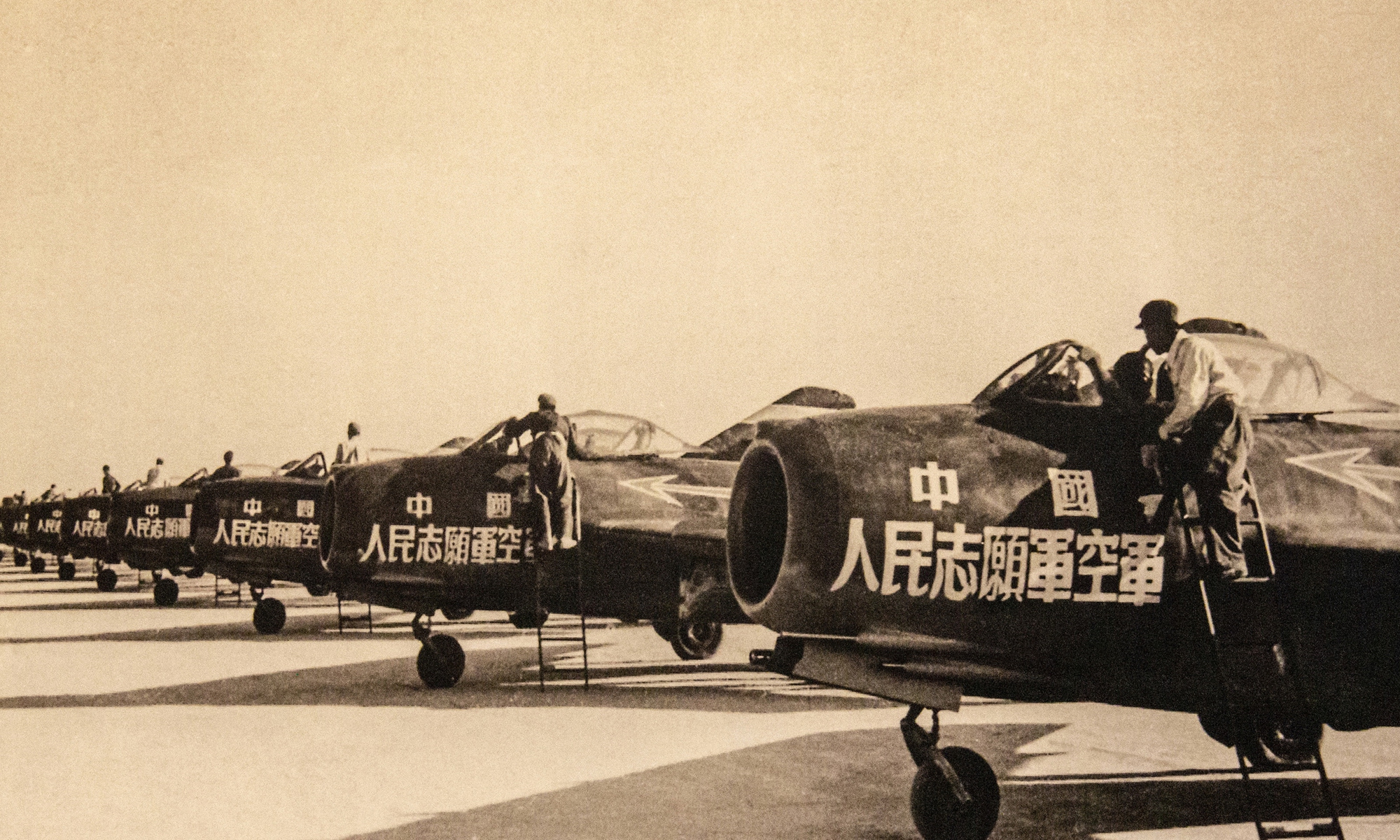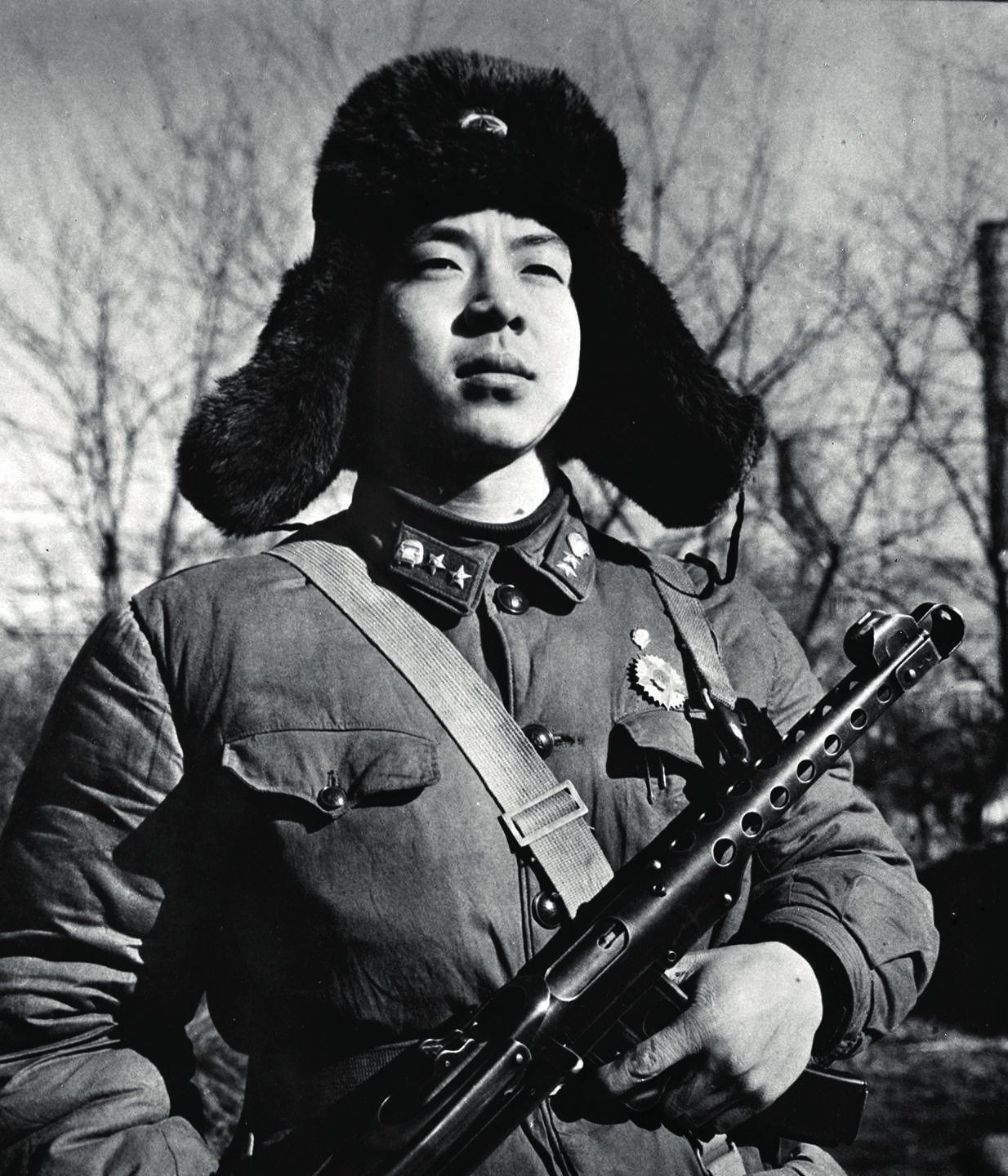CPC’s spiritual legacy has been carried forward through a journey of 100 years: Socialist Revolution and Construction Period
Editor's Note:
Through its century-long history, the Communist Party of China (CPC) has nurtured a series of spirits, which reflect the theme and essence of the centennial history of the Party and provide the strong spiritual motivation to the great rejuvenation of China.
The spirits of the communists in China are a gigantic system and entirety with the same roots and origins. These great spirits were born and developed during the CPC's journey in revolution, construction, and reform and opening-up through historic events, locations and figures.
The spirits are also a reflection of the long-standing and well-established spirits of the people of China - creativity, hardworking, solidarity and having dreams.
The sixth plenary session of the 19th Central Committee of the CPC kicked off on Monday, which is crucial as it's the Party's first major political event after celebrating its 100th founding anniversary.
The Global Times has dedicated three issues to illustrate the precious spirits of the CPC that have been formed and inspired Chinese people in the Party's centennial history.
This is the second issue which will illustrate the spirits that were nurtured in the first three decades after the New China was established. It was a time of construction with great difficulties and hard work, as well as a time with many heroes and high motivations. The CPC led the people to undertake the socialist revolution and construction from the ruins of the war. Many people made their contributions to the country with their lives and blood.

The Spirit of Resisting US Aggression and Aiding Korea
In the War to Resist US Aggression and Aid Korea (1950-53), patriots formed the Chinese People's Volunteers Army to firmly cross the Yalu River. They bravely faced enemy gunfire and the extremely cold environment and won the war with their blood and lives defending peace and justice.

The Spirit of 'Two Bombs and One Satellite'
In the 1950s and 1960s, Chinese researchers, full of patriotic enthusiasm and ambition, worked together under extremely difficult circumstances to overcome numerous technical difficulties. They successfully developed nuclear bombs, ballistic missiles and artificial satellites, demonstrating the strong determination and ability of China to stand self-reliant on the world stage.
Lei Feng Spirit
The inspiration named after Lei Feng, a PLA soldier renowned in China for his generosity and altruistic deeds who died in the line of duty, includes the spirit of dedication to serve the people and the professional dedication to reach extraordinary achievements in ordinary tasks.

Jiao Yulu Spirit
Jiao Yulu was the Party secretary of Lankao county in Central China's Henan Province in the 1960s, who worked hard for all the people and devoted his life to improving the quality of life in the region while fighting sandstorms, poor soil and floods. The spirit displayed by Jiao Yulu was exemplified by his love for the people, a perpetual sense of his mission to serve the people wholeheartedly, his frugality, his tenacious struggle with nature and his honesty among other virtues.
Daqing Spirit (Iron Man Spirit)
In the early 1960s, Chinese oil workers and geologists overcame countless hardships to discover the Daqing oil field in the Songnen Plain, Northeast China. During the exploration and construction of the oil field, the workers, represented by Wang Jinxi, were like iron men and worked hard in the wilderness to build Da-qing into the largest oil production base in China and a world-class oil production hub at that time.
Hongqi Canal Spirit
In the 1960s, 300,000 people in Linxian county, Henan Province, spent ten years to build the 1,500-kilometer-long Hongqi Canal on the cliffs of Taihang Mountains. The work was carried out under extremely poor material conditions to divert water from Shanxi Province, changing the problem of water shortage in the region since ancient times.
Beidahuang Spirit
In the early 1950s, 100,000 soldiers arrived in the barren Sanjiang Plain, Northeast China's Heilongjiang Province and launched a large-scale development and construction campaign, changing the wilderness into a rich granary.
The Spirit of Afforestation Workers on Saihanba Highland
Since China established a forest farm in North China's Hebei Province in 1962, three generations of forest workers devoted themselves to afforestation by planting 7.5 million hectares of artificial forest, which has become an important green belt guarding the Beijing and Tianjin municipalities.
The Spirit of the Builders of the Two Plateau Highways
When the PLA set out in 1950 on their mission to liberate Xizang (Tibet), a contingent of more than 100,000 PLA soldiers, engineers and local residents braved the harsh conditions and took four years to complete two highways with a total of 4,360 km, finally giving Xizang access to a modern road system.

The Spirit of Veterans in Xizang Reconstruction (Kong Fansen Spirit)
In early January 1950, months after the new China was founded, the CPC Central Committee decided to send PLA troops to liberate Xizang. A spirit was fostered during this period - a spirit of the liberation of old Xizang by the PLA troops, of the consequent development of a new Xizang by the people, and of the people dispatched from other parts of the country on assistance missions.
This is also a commemoration of Kong Fansen, a role model for officials who volunteered to work in Xizang for nearly a decade and died in a traffic accident on the plateau.
The Spirit of Westward Academic Relocation
In 1955, the central authorities decided to move part of Jiaotong University, from Shanghai to Xi'an, to support socialist development and national defense. Their noble character was fully demonstrated through their devotion to education in support of national rejuvenation.
Wang Jie Spirit
It was named after Wang Jie, a PLA soldier who was killed while trying to save his comrades from a misplaced land mine during a drill in Xuzhou city, Jiangsu Province, in July 1965.
Through its century-long history, the Communist Party of China (CPC) has nurtured a series of spirits, which reflect the theme and essence of the centennial history of the Party and provide the strong spiritual motivation to the great rejuvenation of China.
The spirits of the communists in China are a gigantic system and entirety with the same roots and origins. These great spirits were born and developed during the CPC's journey in revolution, construction, and reform and opening-up through historic events, locations and figures.
The spirits are also a reflection of the long-standing and well-established spirits of the people of China - creativity, hardworking, solidarity and having dreams.
The sixth plenary session of the 19th Central Committee of the CPC kicked off on Monday, which is crucial as it's the Party's first major political event after celebrating its 100th founding anniversary.
The Global Times has dedicated three issues to illustrate the precious spirits of the CPC that have been formed and inspired Chinese people in the Party's centennial history.
This is the second issue which will illustrate the spirits that were nurtured in the first three decades after the New China was established. It was a time of construction with great difficulties and hard work, as well as a time with many heroes and high motivations. The CPC led the people to undertake the socialist revolution and construction from the ruins of the war. Many people made their contributions to the country with their lives and blood.

The Daqing oil field Photo: VCG
The Spirit of Resisting US Aggression and Aiding Korea
In the War to Resist US Aggression and Aid Korea (1950-53), patriots formed the Chinese People's Volunteers Army to firmly cross the Yalu River. They bravely faced enemy gunfire and the extremely cold environment and won the war with their blood and lives defending peace and justice.

Air force of Chinese People's Volunteers Army Photo: VCG
The Spirit of 'Two Bombs and One Satellite'
In the 1950s and 1960s, Chinese researchers, full of patriotic enthusiasm and ambition, worked together under extremely difficult circumstances to overcome numerous technical difficulties. They successfully developed nuclear bombs, ballistic missiles and artificial satellites, demonstrating the strong determination and ability of China to stand self-reliant on the world stage.
Lei Feng Spirit
The inspiration named after Lei Feng, a PLA soldier renowned in China for his generosity and altruistic deeds who died in the line of duty, includes the spirit of dedication to serve the people and the professional dedication to reach extraordinary achievements in ordinary tasks.

Lei Feng Photo: Xinhua
Jiao Yulu Spirit
Jiao Yulu was the Party secretary of Lankao county in Central China's Henan Province in the 1960s, who worked hard for all the people and devoted his life to improving the quality of life in the region while fighting sandstorms, poor soil and floods. The spirit displayed by Jiao Yulu was exemplified by his love for the people, a perpetual sense of his mission to serve the people wholeheartedly, his frugality, his tenacious struggle with nature and his honesty among other virtues.
Daqing Spirit (Iron Man Spirit)
In the early 1960s, Chinese oil workers and geologists overcame countless hardships to discover the Daqing oil field in the Songnen Plain, Northeast China. During the exploration and construction of the oil field, the workers, represented by Wang Jinxi, were like iron men and worked hard in the wilderness to build Da-qing into the largest oil production base in China and a world-class oil production hub at that time.
Hongqi Canal Spirit
In the 1960s, 300,000 people in Linxian county, Henan Province, spent ten years to build the 1,500-kilometer-long Hongqi Canal on the cliffs of Taihang Mountains. The work was carried out under extremely poor material conditions to divert water from Shanxi Province, changing the problem of water shortage in the region since ancient times.
Beidahuang Spirit
In the early 1950s, 100,000 soldiers arrived in the barren Sanjiang Plain, Northeast China's Heilongjiang Province and launched a large-scale development and construction campaign, changing the wilderness into a rich granary.
The Spirit of Afforestation Workers on Saihanba Highland
Since China established a forest farm in North China's Hebei Province in 1962, three generations of forest workers devoted themselves to afforestation by planting 7.5 million hectares of artificial forest, which has become an important green belt guarding the Beijing and Tianjin municipalities.
The Spirit of the Builders of the Two Plateau Highways
When the PLA set out in 1950 on their mission to liberate Xizang (Tibet), a contingent of more than 100,000 PLA soldiers, engineers and local residents braved the harsh conditions and took four years to complete two highways with a total of 4,360 km, finally giving Xizang access to a modern road system.

The Qinghai-Xizang Highway Photo: VCG
The Spirit of Veterans in Xizang Reconstruction (Kong Fansen Spirit)
In early January 1950, months after the new China was founded, the CPC Central Committee decided to send PLA troops to liberate Xizang. A spirit was fostered during this period - a spirit of the liberation of old Xizang by the PLA troops, of the consequent development of a new Xizang by the people, and of the people dispatched from other parts of the country on assistance missions.
This is also a commemoration of Kong Fansen, a role model for officials who volunteered to work in Xizang for nearly a decade and died in a traffic accident on the plateau.
The Spirit of Westward Academic Relocation
In 1955, the central authorities decided to move part of Jiaotong University, from Shanghai to Xi'an, to support socialist development and national defense. Their noble character was fully demonstrated through their devotion to education in support of national rejuvenation.
Wang Jie Spirit
It was named after Wang Jie, a PLA soldier who was killed while trying to save his comrades from a misplaced land mine during a drill in Xuzhou city, Jiangsu Province, in July 1965.

